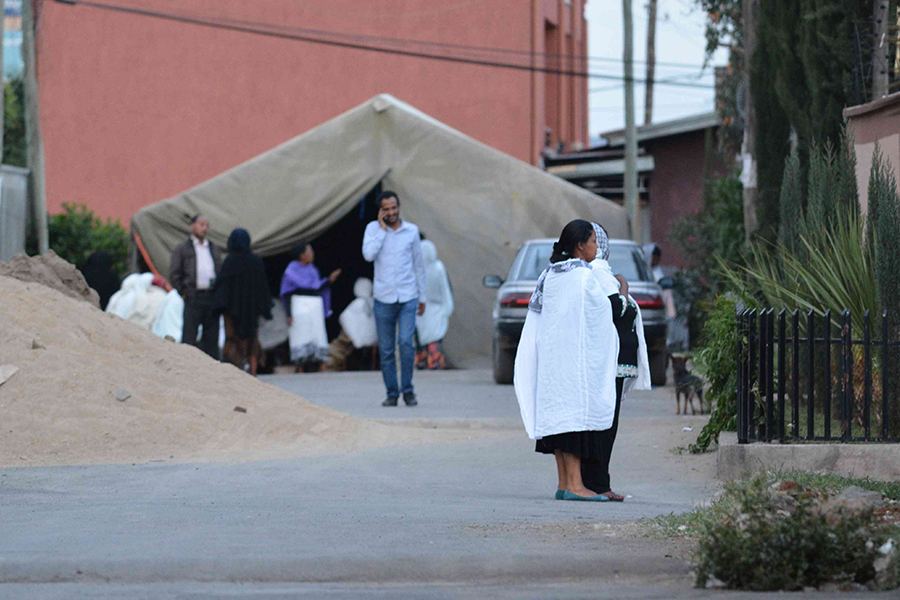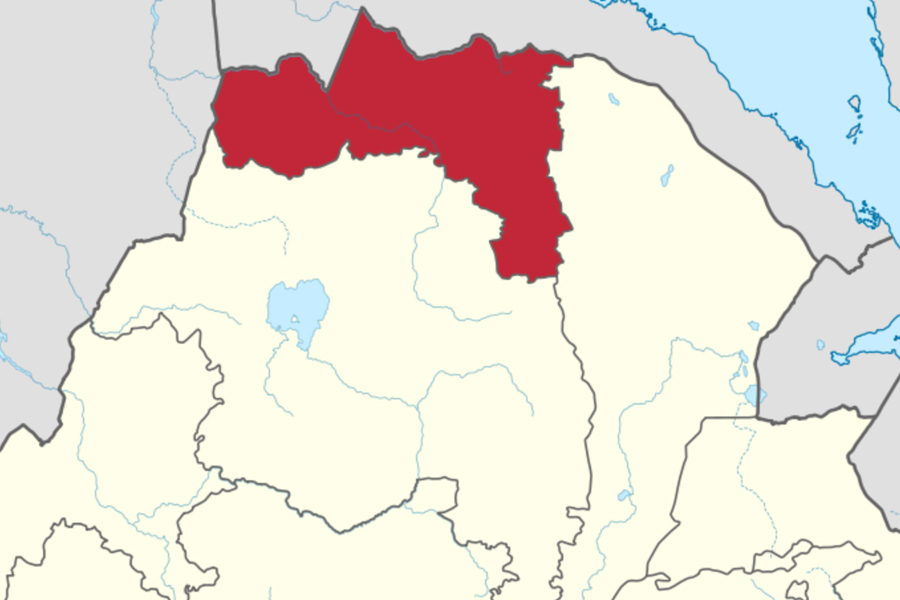
I left my house, last Monday, as the rain fell in torrents, to be on time for the monthly debate on the arts. It was being staged at Hager Fikir Theatre, the oldest such place in Ethiopia. It was as the swampy blinds from swollen streams turned turbid that I approached the venue. The muddy waters are symbolic of the multifaceted problems the art industry is facing now.
The debate was about art schools and how the art industry stands on the pillars of present-day capitalism and is thus beholden to profit-making and attention-grabbing. I was worried where the debate would end up, being an issue only among patronising friends devoid of professionalism that reportedly plagued the industry.
Whether the debate stood on the spirit of a workshop, to seek solutions to problems, and continue being a brainstorming session for artists, or a debate on the direction of art, was hard to decipher. A gathering should have accommodated industry entrants bearing only talent and hope for who they are and an exchange of advice and experience with veterans.
The debate began facilitated by a young and enthusiastic artist. The audience was also attended by equally enthusiastic authors, actors, and audiences. Terse were anecdotes, stories, and shared experiences of the actors and directors, writers, critics, and audiences. We had more understanding of what acting really entails. It was clear that even small things such as vocal warm-ups and exercises were crucial in creating the atmosphere needed during shows.
As I thought about the lots of excuses that might surface through the debate, Ernest Hemingway and William Faulkner came to my mind, owners of styles so unique that their work is reportedly easily recognised. Yet, neither of them had a style as recognisable and beloved with a popular expression as Lope de Vega of the 16th century.
Author of more than 2,000 dramas, his works are acclaimed to be graceful, so elegant and earthy, with a style known as Es de Lope. No doubt, as the Spanish Golden Age drama is written almost entirely in verse, unlike their Elizabethan counterparts, Lope de Vega opted for lightness and speed that enabled plays to unfold with the pace that “restless and easily bored Spanish audiences” demanded. Instead of lamenting this mishap, the architect of the drama of the Spanish Golden Age came up with, “a verse which is musical and pleasing on the lips of an actor and the ears of an audience.” He “created plots and characters notable for their energy, inventiveness, and dramatic power.”
While almost only 340 of his pieces survived, on their own, they are ten times as many plays as Shakespeare wrote, and as many as all the works of the other Elizabethan and Jacobean dramatists put together. On top of this, he paved the way for younger dramatists. His literary works included prose and poetry; the big crossover he did epitomises his imaginative reach.
The importance of Lope de Vega is less in being widely read and admired by audiences. It is his contribution to the art form he served that got attention. He is the artist’s artist, with his work a bit too inaccessible for regular readers but a constant source of information for artists looking to elevate their work.
New platforms are popping up every other year, or so it seems. Facebook or Twitter may not in and of themselves assist our stride in the muddy waters. But they are helpful platforms to introduce the new generation to why the arts – including plays and poems – are humanities’ best defence against boredom, ignorance and lack of context.
PUBLISHED ON
Jul 17,2022 [ VOL
23 , NO
1159]


Fortune News | Jan 11,2020

Radar | Oct 16,2021

Sponsored Contents | May 22,2023

Agenda | Jul 21,2024

View From Arada | Apr 27,2024

Radar | Nov 16,2024

Editorial | Jun 14,2025

Radar | Nov 27,2023

Radar | Nov 27,2023

Fortune News | Nov 21,2020

Dec 22 , 2024 . By TIZITA SHEWAFERAW
Charged with transforming colossal state-owned enterprises into modern and competitiv...

Aug 18 , 2024 . By AKSAH ITALO
Although predictable Yonas Zerihun's job in the ride-hailing service is not immune to...

Jul 28 , 2024 . By TIZITA SHEWAFERAW
Unhabitual, perhaps too many, Samuel Gebreyohannes, 38, used to occasionally enjoy a couple of beers at breakfast. However, he recently swit...

Jul 13 , 2024 . By AKSAH ITALO
Investors who rely on tractors, trucks, and field vehicles for commuting, transporting commodities, and f...

Jun 28 , 2025
Meseret Damtie, the assertive auditor general, has never been shy about naming names...

Jun 21 , 2025
A well-worn adage says, “Budget is not destiny, but it is direction.” Examining t...

Jun 14 , 2025
Yet again, the Horn of Africa is bracing for trouble. A region already frayed by wars...

Jun 7 , 2025
Few promises shine brighter in Addis Abeba than the pledge of a roof for every family...